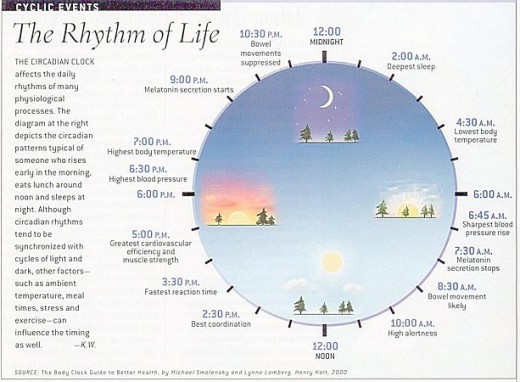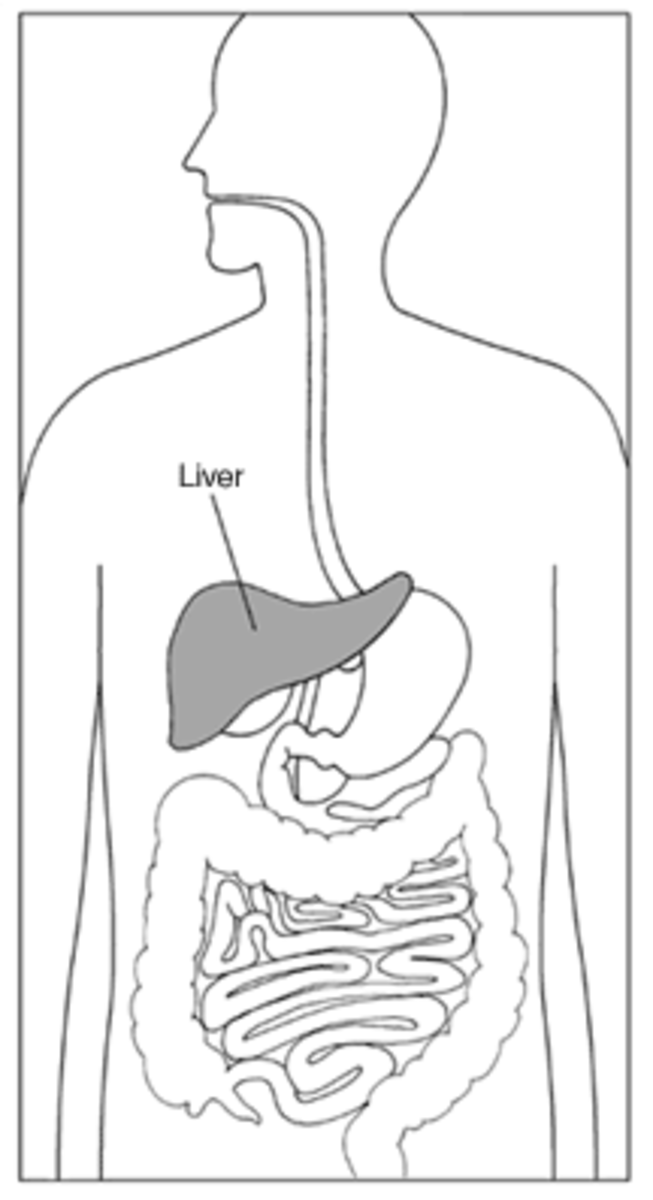Peak Performance and Location

Why a Sudden Change to a New Location Scrambles Performance
The existence of the so called Circadian rhythm is by now a proven fact that tells us how every living organism has built in cycles that operate in synchronization with the sun and moon. This cycle is rooted deep in the evolution of life when the trick of photosynthesis linked plants directly to the sun in its daily and annual cycles. Life also learned to adapt to the influence of the moon, particularly with the tides. For the last 3.6 billion years, this has been going on and we are still under the spell of the sun and the moon. Out own internal clocks are fixed not only by the cycle of these two principle bodies, but are somewhat influenced by the other planets and very strongly by location; that is, where we were born and live. Today, almost everyone in the developed world knows about “jet lag” a.k.a.desynchronosis, the term used when we feel out of sorts after flying over a few to several time zones and feel out of energy, fatigued and suffer insomnia. Due to the circadian rhythm that has been synchronized to a specific influence at a specific local, a large change in local will have a profound impact on one's daily cycle. Suddenly the peak time is out of synch and so is sleep. As a result, functions such as cognitive ability and physical stamina fall off due to the sudden introduction of the chaos of local, where people jet back and forth over many time zones in short order. They constantly fall under a new set of local influences that wreck havoc with their inborn circadian rhythm.
People who remain in one local, or longitude suffer the least from this, but tourists, traveling executives and sports professionals all suffer from the changes of local influences as they travel and this puts internal rhythms out of synch. Suddenly their peak time is off and so are sleep patterns that add to the problem. Whats worse is that during the period of adjustment, they will feel out of sorts and run down for a prolonged period without having a peak period during the day. The effect works regardless of whether one travels east of west over at least a few time zones. Short hop trips impact the least, but locations half a world away are the most devastating to body and brain cycles.
A small part of the brain called the hypothalamus acts like a timer which activates body functions such as hunger, thirst, and sleep. This region of the brain is also referred to by some as the third eye and in some ways it behaves as a primitive eye. But it does far more in different ways than the eyes that collect and transmit light to the brain. It is also responsible for regulating body temperature, blood pressure and the level of hormones and glucose in the blood. In order for the body to tell the time of day, fibers in the optic nerve of the eye transmit perceptions of light and darkness to a light sensor within the hypothalamus. When the eye of a multiple time zone air traveler senses dawn or dusk many hours earlier or later than usual, the hypothalamus triggers chemical reactions that the rest of the body is not ready for and “jet lag” occurs. Thus a person feels worn out and has trouble sleeping due to mixed up and conflicting stimuli and responses to chemical changes that occur in contradiction.
Tourist travelers, business people, sports ammeters and professionals all have to deal with jet lag the results with out of synch sensory input to body rhythms that are set for a specific location. There are “fixes” for jet lag that many people rely on who travel frequently, but for the sports professional, these fixes are often taboo and subject to controversy, banning from performing and losing anything they may have won. We use the idea of time zones to explain the effects of changing light cycles, but the reality is mind-body cycles that are tied with the rotation of the earth and the relationships between the sun and the moon in the sky. This reality emerges more clearly when we consider the non traveler who suffers from seasonal affected disorder (SAD). When the earth moves to the position in its orbit that puts the northern hemisphere into winter, then there is a lot less daylight. The hypothalamus senses this and for some people, they are slowed down and feel depressed in the winter months. In addition, it is noted that the moon in its monthly cycle has an influence on a person's mood and performance. Women whose bodies are more tied in to lunar cycles than men, appreciate this monthly variation more strongly. But if a person pays attention to these changes whether man or women, will sense days over a cycle where they perform better or worse on a day to day basis.
In our rigid concept of the work day and week, we do not want to acknowledge these variations, expecting to perform equally on all of them. Those who are in authority expect their employees to perform at top notch on all days and seasons equally. Many of them are ignorant of these very real variations and will punish and reward according to rising and falling performance among people they are supervising. Due to the variations of birth time and location, everyone has circadian rhythms that are out of phase with most other people. Thus, when some people feel out of sorts and we feel great, it is hard to understand those who are out of sorts until the relationship is reversed and it is s who are wondered about. There are general patterns such as seasons that affect almost everyone, but even here there are differences.
A study was done concerning the circadian rhythm and how it effects the national football league (NFL) (1). The statistical analysis determined that away team players suffered a reduction in performance of up to 9 percent averaged reduced deviation from normal and optimal performance based on Gaussian curves. Simply stated, performance is linked to daily cycles according to location and these increase and decrease over a 24 hour period in cyclic fashion. The wider the time zone separation between the competing teams, the greater this tendency was. On the west coast, a 5 PM game translates to an 8 PM start for the visitors when the visitors cycle is tending downward. On the other hand, a 5 PM game on the east coast translates to a 2 PM on the west coast which means that the west should perform better, except that the day of arrival might not be the same as the day of play. Sleep dysfunction then plays a part resulting in reduced function. Home teams preformed much better and this accounted for some of the wins and losses. Other factors enter into the analysis as well such as individual performance of all players at any given time. We have touched on some of this in the foregoing. Professional and amateur sports players have a lot riding on the games they play, not the least of which is the interest of millions of fans who have a vicarious sensation of the ecstasy of victory and the agony of defeat. Nothing thrills more than a closely matched game of individual and team interaction. Most people like to think that they support the best team there is, and this is no more true than now with the conference hockey battle between the Vancouver Canucks and the Boston Bruins.
What remains is a detailed analysis of each team by members and conference location.
Cycles are hard wired in out genes






